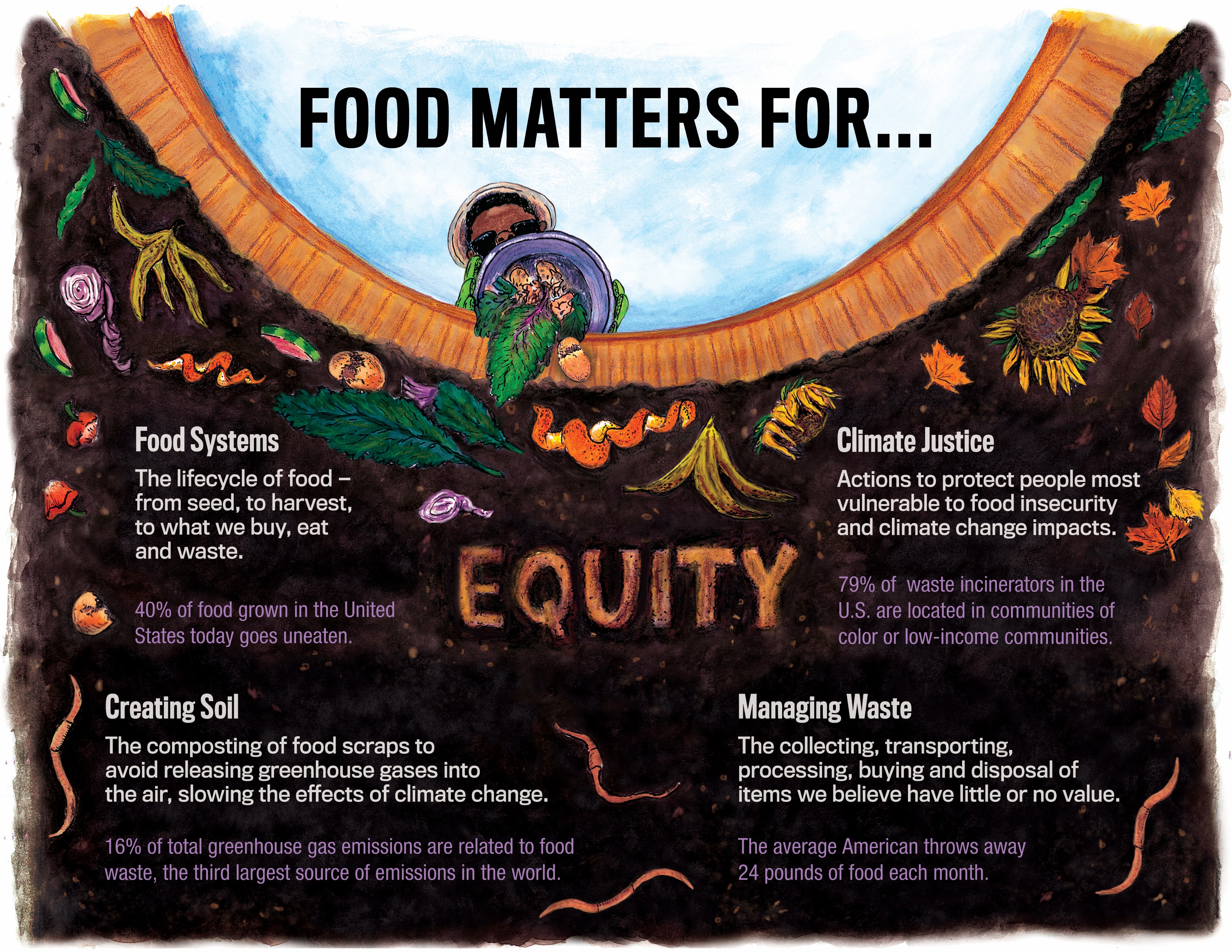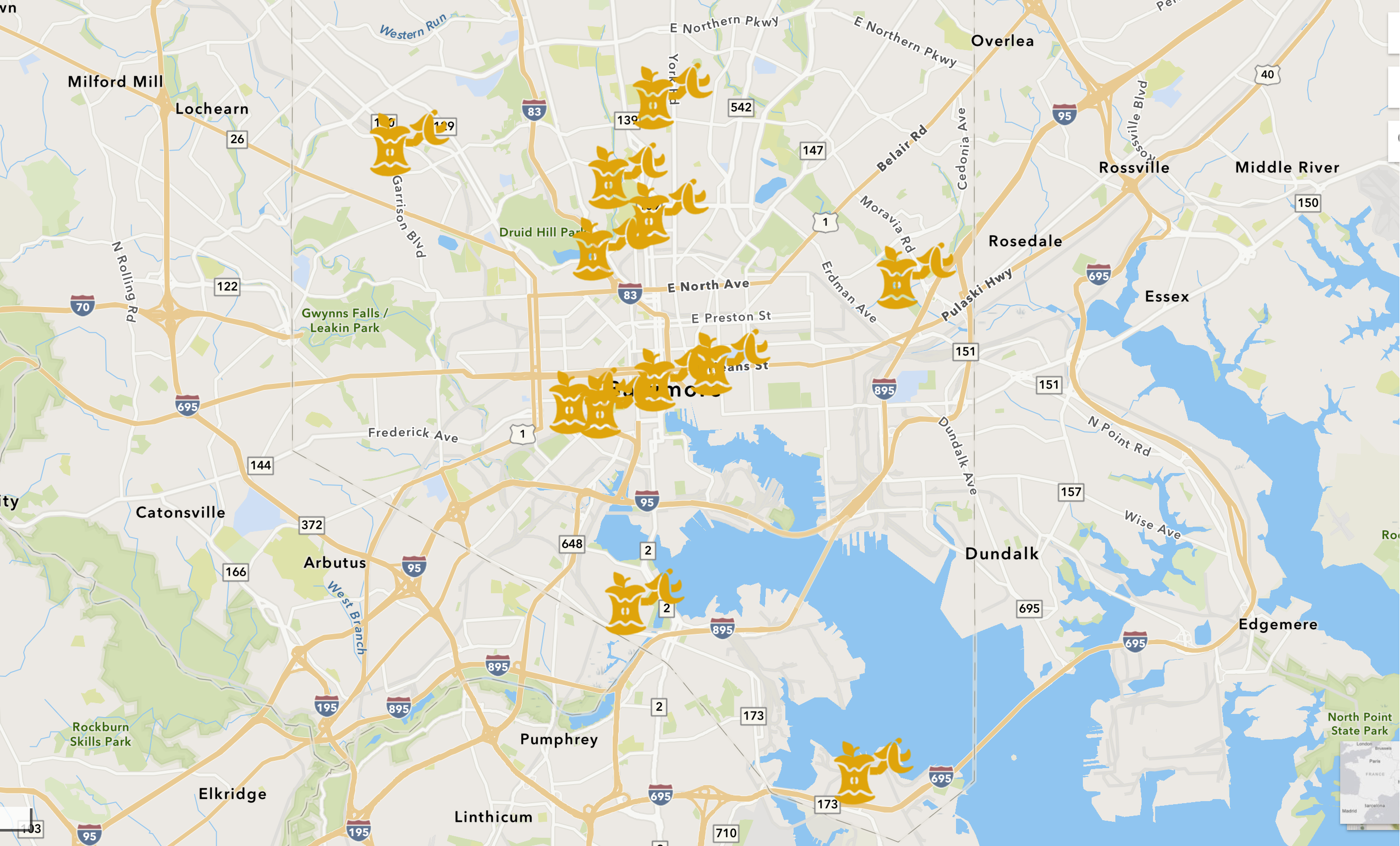
× ![]()
An estimated 40% of the residential trash stream is wasted food, which produces methane, a potent greenhouse gas and contributor to global climate change, when it decomposes in landfills. A transition towards sustainable food waste management requires cutting down on unnecessary food waste:
- Rethink what you buy: plan your meals and check your pantry before making a grocery list
- Reduce food waste: store food properly to extend shelf life and designate an “eat me first” zone in your fridge to avoid expiration
- Reuse leftovers: Try preserving, canning and pickling excess produce or making “kitchen-sink” meals with left-over ingredients
- Recycle what’s left: Compost food waste using a local hauler, in your backyard, or at one of the City’s drop-off locations (see below).
Food Scrap Drop-Off Locations
Baltimore City residents can drop-off food scraps at Residential Recycling Center.
 View Map
View Map
Acceptable
|
Unacceptable
|
| Fruits and Vegetables |
Oils |
| Eggshells |
Produce Stickers |
| Gourds |
Paper Products |
| Grains, Bread, Pasta |
Plastic Bags |
| Coffee Grounds |
Compostable Tableware |
| Paper Tea Bags (no staples) |
|
| Meats |
|
| Dairy |
|
New University Pilot Locations Through 2025
DPW has received a grant from the U.S. Department of Agriculture (USDA) Composting and Food Waste Reduction (CFWR) to pilot five new food scrap drop-off locations on the campuses of local Universities. The new drop-off sites will accept food scraps from the surrounding community during their drop off hours.

Looking for a drop-off site closer to you? Check out this map with additional community composting sites across the city.
View Map
Helpful Resources:
You can bring food scraps in any container of your choice. Once you arrive at the drop-off location, you will empty your food scraps into the designated container. To bring your acceptable food scraps to the drop-off site, you can use any reusable container. Please note that containers or bags of all types must be emptied (plastic, paper, compostable) into the designated container at the drop-off site. Do not place bagged items in these containers.
When collecting your food scraps at home, you can practice ‘reuse’ by using an empty coffee canister or a snack container with a lid to store your food scraps. When storing these food scraps, placing them in the fridge or freezer until you are ready to bring them to a drop-off location will decrease any chance for odor.
This pilot is taking place at the residential drop-off centers, and is only available to residents. Businesses that wish to compost may contract with a private hauler to have food scraps picked up from their business.
Yes! Residents may compost at home,
please visit our Source Reduction page for home composting tips. Please note that DPW does not provide curbside compost collections.

